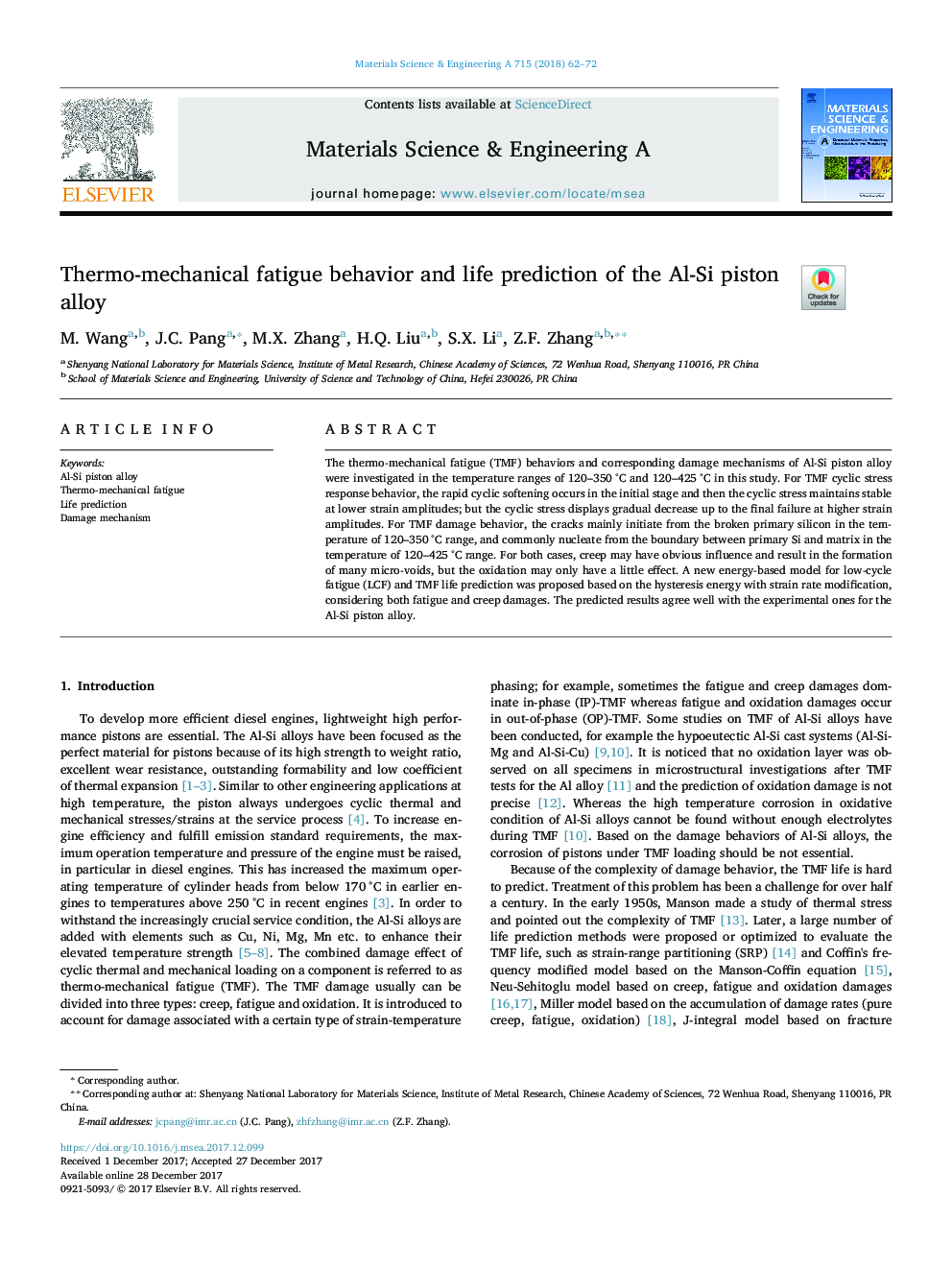| Article ID | Journal | Published Year | Pages | File Type |
|---|---|---|---|---|
| 7973563 | Materials Science and Engineering: A | 2018 | 11 Pages |
Abstract
The thermo-mechanical fatigue (TMF) behaviors and corresponding damage mechanisms of Al-Si piston alloy were investigated in the temperature ranges of 120-350 °C and 120-425 °C in this study. For TMF cyclic stress response behavior, the rapid cyclic softening occurs in the initial stage and then the cyclic stress maintains stable at lower strain amplitudes; but the cyclic stress displays gradual decrease up to the final failure at higher strain amplitudes. For TMF damage behavior, the cracks mainly initiate from the broken primary silicon in the temperature of 120-350 °C range, and commonly nucleate from the boundary between primary Si and matrix in the temperature of 120-425 °C range. For both cases, creep may have obvious influence and result in the formation of many micro-voids, but the oxidation may only have a little effect. A new energy-based model for low-cycle fatigue (LCF) and TMF life prediction was proposed based on the hysteresis energy with strain rate modification, considering both fatigue and creep damages. The predicted results agree well with the experimental ones for the Al-Si piston alloy.
Related Topics
Physical Sciences and Engineering
Materials Science
Materials Science (General)
Authors
M. Wang, J.C. Pang, M.X. Zhang, H.Q. Liu, S.X. Li, Z.F. Zhang,
